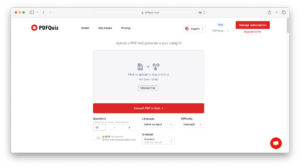In recent years, the recruitment industry has been significantly transformed by technology. Companies are adopting innovative solutions to streamline the hiring process, reduce time-to-hire, and improve the overall candidate experience. This article delves into the various technologies currently shaping the recruitment landscape and offers insights into best practices for leveraging these tools effectively. Key players, such as truck driver recruiters, have particularly benefited from these advancements, enabling them to manage candidate pipelines better and enhance operational efficiency.
The digital age brings with it a plethora of tools designed to automate and optimize various facets of recruitment. By leveraging these technologies, recruitment teams can focus on strategic activities that contribute to the company’s growth while significantly improving the candidate experience. This technological shift is not only limited to optimizing internal processes but also extends to enhancing communication and engagement with potential candidates.
The Role of Automation in Recruitment
Automation is at the forefront of recruitment technology. Tools such as applicant tracking systems (ATS) and automated screening solutions help recruiters sort through large volumes of applications efficiently. These systems can prioritize resumes based on specific criteria set by recruiters, ensuring that only the most qualified candidates are considered. Automating repetitive tasks allows recruitment teams to focus more on strategic activities, such as enhancing employer branding and building relationships with candidates. Furthermore, automation can significantly reduce human errors, ensuring a more accurate and fair hiring process.
Beyond applicant tracking, automation can facilitate scheduling interviews, sending follow-up emails, and updating candidates on their application status. This not only saves time but also enhances the candidate experience by keeping them informed and engaged throughout the recruitment process.
Utilizing Data Analysis to Improve Hiring Processes
Data analysis empowers recruiters to make more informed decisions. By leveraging analytics tools, companies can gain insights into their recruitment metrics, such as time-to-hire, cost-per-hire, and source of hire. These insights allow for more strategic resource allocation and process improvements. For instance, predictive analytics can forecast future hiring needs and help in workforce planning. This can be particularly advantageous for companies experiencing rapid growth or seasonal hiring spikes.
Additionally, data analysis can help organizations identify trends in candidate behavior, such as the best sources for high-quality applicants or the most effective communication channels. This information can be used to fine-tune recruitment strategies and improve overall hiring outcomes.
Enhancing Candidate Experience
To recruit top talent, it is imperative to provide a favorable applicant experience. The hiring process may be made more interesting by utilizing technologies like chatbots and AI-powered communication systems, which can provide candidates with quick updates and feedback. For example, chatbots may lead applicants through the application process and respond to often requested queries, saving time and offering prompt support.
Personalized communication, together with a simplified application procedure, may also make a lasting impact on prospects. Candidates value promptness and transparency, which may be attained by using automated yet customized communication techniques. This strategy enhances the applicant experience while bolstering the employer brand.
The Rise of Mobile Recruitment
With the increasing use of smartphones, mobile recruitment has become essential. Mobile-friendly career pages and application processes ensure that candidates can easily apply for jobs on the go. Research shows that job seekers are more likely to complete applications if they can do so via their mobile devices. Implementing mobile recruitment strategies can significantly broaden the talent pool, making it easier to reach potential candidates who may need access to a desktop computer during their job search.
Moreover, mobile recruitment enables real-time engagement through push notifications and SMS updates, keeping candidates informed and engaged throughout the hiring process. This immediacy can lead to quicker application submissions and faster hiring decisions.
Leveraging Social Media for Talent Acquisition
Social networking sites are practical recruitment tools. By advertising job vacancies on social media platforms like Facebook, Twitter, and LinkedIn, businesses may reach a wider audience. Social networking platforms enable recruiters to find and connect with possible applicants who are not actively seeking employment in addition to advertising job openings. This process is known as passive candidate sourcing. Top-tier talent can be drawn in by social media presentations of corporate culture and engaging content.
Furthermore, social media platforms offer advanced targeting options, enabling recruiters to reach candidates with specific skills and experiences. Building a strong employer presence on social media can also enhance the company’s brand, making it more attractive to potential candidates. Interactive content, such as employee testimonials and day-in-the-life videos, can provide valuable insights into the company culture and work environment.
Future Trends in Recruitment Technology
The future of recruitment technology looks promising with advancements in artificial intelligence (AI) and machine learning (ML). These technologies can further enhance automation, personalization, and predictive analytics in recruitment. For instance, AI-powered tools can analyze candidate profiles and match them with job openings more accurately, reducing the time spent on manual screening.
Additionally, the use of virtual reality (VR) for immersive candidate assessments and remote hiring platforms will continue to rise, making the recruitment process more dynamic and inclusive. Candidates can participate in virtual interviews and job simulations from anywhere in the world, providing a more flexible and engaging experience. As technology continues to evolve, recruitment processes will become more efficient, data-driven, and candidate-centric.









